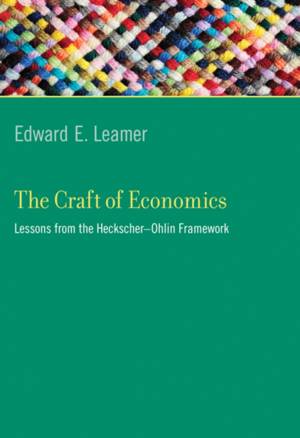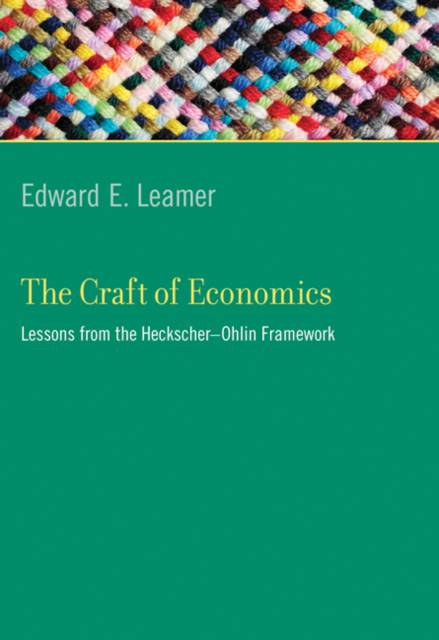
- Afhalen na 1 uur in een winkel met voorraad
- Gratis thuislevering in België vanaf € 30
- Ruim aanbod met 7 miljoen producten
- Afhalen na 1 uur in een winkel met voorraad
- Gratis thuislevering in België vanaf € 30
- Ruim aanbod met 7 miljoen producten
Omschrijving
A review of the Heckscher-Ohlin framework prompts a noted economist to consider the methodology of economics.
In this spirited and provocative book, Edward Leamer turns an examination of the Heckscher-Ohlin framework for global competition into an opportunity to consider the craft of economics: what economists do, what they should do, and what they shouldn't do. Claiming "a lifetime relationship with Heckscher-Ohlin," Leamer argues that Bertil Ohlin's original idea offered something useful though vague and not necessarily valid; the economists who later translated his ideas into mathematical theorems offered something precise and valid but not necessarily useful. He argues further that the best economists keep formal and informal thinking in balance. An Ohlinesque mostly prose style can let in faulty thinking and fuzzy communication; a mostly math style allows misplaced emphasis and opaque communication. Leamer writes that today's model- and math-driven economics needs more prose and less math.
Leamer shows that the Heckscher-Ohlin framework is still useful, and that there is still much work to be done with it. But he issues a caveat about economists: "What we do is not science, it's fiction and journalism." Economic theory, he writes, is fiction (stories, loosely connected to the facts); data analysis is journalism (facts, loosely connected to the stories). Rather than titling the two sections of his book Theory and Evidence, he calls them Economic Fiction and Econometric Journalism, explaining, "If you find that startling, that's good. I am trying to keep you awake."
Specificaties
Betrokkenen
- Auteur(s):
- Uitgeverij:
Inhoud
- Aantal bladzijden:
- 208
- Taal:
- Engels
- Reeks:
Eigenschappen
- Productcode (EAN):
- 9780262016872
- Verschijningsdatum:
- 6/01/2012
- Uitvoering:
- Hardcover
- Formaat:
- Genaaid
- Afmetingen:
- 147 mm x 211 mm
- Gewicht:
- 254 g

Alleen bij Standaard Boekhandel
Beoordelingen
We publiceren alleen reviews die voldoen aan de voorwaarden voor reviews. Bekijk onze voorwaarden voor reviews.











